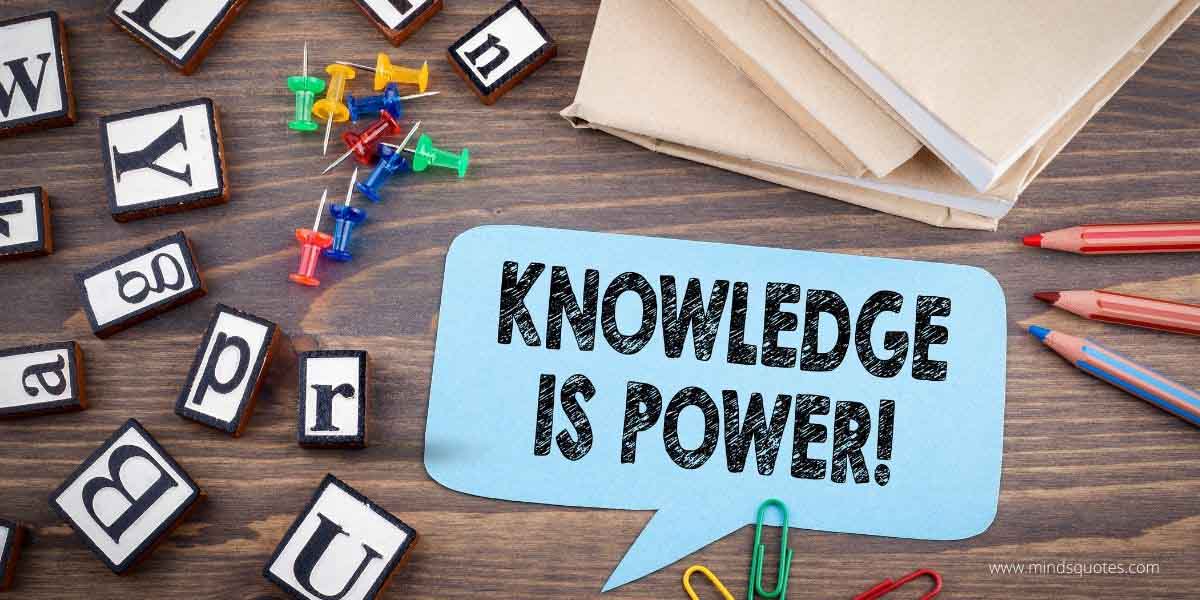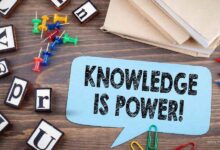Knowledge is power

The axiom “Knowledge is Power” is a salient truth that traverses cultures and time. In its essence, this phrase encapsulates the profound significance of intellectual acuity and enlightenment in effectuating control over one’s environment and circumstances. Rooted in the writings of Sir Francis Bacon in 1597, it underscores the instrumental role of knowledge in the ascendancy of civilizations, the evolution of societies, and the individual’s journey of self-empowerment.
The Role of Knowledge in Personal Empowerment
Knowledge, as a conduit of personal empowerment, assumes multifaceted forms. As a cognitive enrichment tool, it fuels the growth of intellectual horizons, fostering creativity, innovation, and a deeper understanding of the world. On the emotional spectrum, knowledge fosters resilience and adaptability, equipping individuals to navigate life’s vicissitudes with grace and fortitude. Furthermore, knowledge bolsters decision-making prowess and autonomy, enabling individuals to make informed choices that align with their life goals and values.
Knowledge as Social Power: The Broader Implications
Transcending the personal realm, knowledge wields substantial influence on the social stratum. The distribution and access to knowledge have profound implications on societal structures, often precipitating disparities in wealth, influence, and opportunities. Conversely, it offers a potent tool for social mobilization, fostering collective consciousness and enabling societies to enact positive change. Moreover, knowledge serves as a fulcrum of influence, determining the trajectory of discourses, policies, and cultural norms.
The Digital Age: Knowledge and Information at our Fingertips
With the advent of the digital age, knowledge has become ubiquitously accessible, heralding an era of unprecedented informational abundance. The internet, as a colossal repository of data, offers limitless opportunities for learning, research, and intellectual exploration. It democratizes knowledge access, bridging geographical, cultural, and economic divides, and catalyzing a global exchange of ideas and insights.
Challenges in Harnessing the Power of Knowledge
However, the contemporary knowledge landscape presents formidable challenges. The deluge of information can engender cognitive overload, obscuring relevant insights amidst the sea of data. Moreover, the proliferation of ‘fake news’ and misinformation poses a serious threat to the integrity of knowledge, undermining informed decision-making and fomenting social discord.
Strategies for Effective Knowledge Acquisition and Utilization
To navigate these challenges, adopting robust strategies for knowledge acquisition and utilization is imperative. Embracing a culture of lifelong learning is a pivotal first step. It encompasses cultivating curiosity, seeking diverse learning avenues, and continually updating one’s knowledge
base. Equally crucial is honing critical thinking skills and the ability to evaluate sources for credibility and bias. In an era fraught with misinformation, discerning fact from fiction is not merely a cognitive exercise but a civic responsibility.
Conclusion: The Future of Knowledge is Power
As we stand on the precipice of the future, the adage ‘knowledge is power‘ holds steadfast, its relevance undiminished. However, the nature of knowledge and how it is harnessed will continually evolve. Emerging technologies like artificial intelligence and big data are revolutionizing the way we acquire, process, and apply knowledge. In this dynamic landscape, knowledge remains the driving force propelling individuals, societies, and civilizations towards growth, progress, and empowerment.
Therefore, the pursuit of knowledge is not just an individual endeavor but a collective imperative. As we traverse the labyrinth of the information age, it is our shared responsibility to ensure that knowledge is not just accessible, but is also accurate, reliable, and used for the betterment of all. In this endeavor, we must remember that knowledge is not just power—it is our most potent tool for creating a more informed, equitable, and enlightened future.







